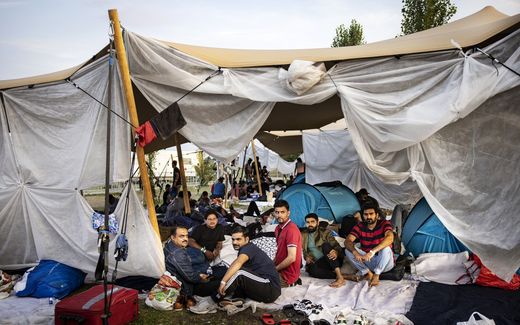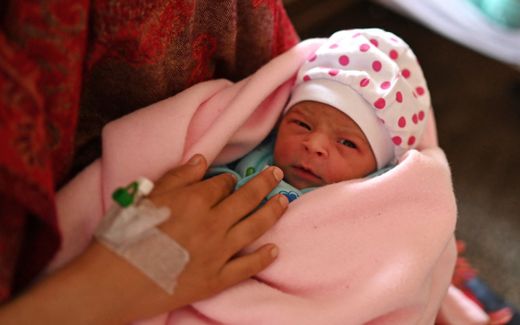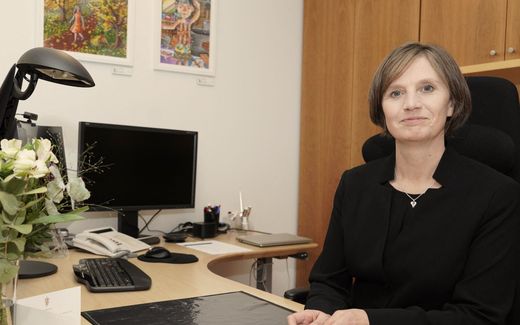Column from Spain: Evangelical migrants from Latin America change the country
25-08-2023
Christian Life
Jorge Ruiz Ortiz, CNE.news

Children in an Evangelical church in Spain. Photo Facebook, Iglesia Evangélica
Christian Life
A few days from home during the vacation showed me a different Spain. With my own eyes, I saw that things were changing. Spanish parents get fewer children, but migrants take the empty places. Among them, there are many Evangelicals. And their number will grow. They might even change the country.
Of course, Spain is a country where people come for holidays. The coastline of more than 5,000 kilometres serves the masses. And the climate in the country is varied.
For this reason, there are many options for where to spend the summer. We went to Burgos in the north. While it was really hot in the Mediterranean and southern areas, in Burgos, we slept peacefully under the winter quilt.
On Sunday, we enjoyed the fellowship in two Evangelical congregations in different towns. There was one thing that struck us in both congregations: approximately 90 per cent of the attendees were of Latin American origin. There were also believers of Spanish origin, but those of foreign origin were really many.
This fact, I believe, allows me to speak about a truly important –indeed, I believe transcendental– issue for the future of Spain.
Babies
Earlier this month, it was announced that the population of Spain has reached an all-time high of over 48 million people. Is that a big deal? Yes, it is. Let me explain for a moment the scope of this fact.

It is clear this growth is not caused by more babies born. Spain's birth rate, at 1.3 children per woman, is among the lowest in the world. The growth has therefore been made possible by immigration during the second quarter of this year: all the countries of Latin America (especially Colombia) have contributed more than 100,000 new residents, while some 27,000 are from Morocco.
On the other hand, Spain continues to be among the five countries with the highest life expectancy in the world, with an average of 83.5 years. According to various studies, if current trends continue, by 2040, Spain will be the country with the longest life expectancy in the world, when 30 per cent of the population will be 65 or older – i.e. at retirement age.
Projections
With so many old people, the country needs more young hands for work and care. In other words, Spain will depend even more on immigration for generational replacement in the coming years.
At the moment, 8.5 million residents of Spain were born outside the country. The number is probably much higher, counting illegal immigration. To these, according to official projections, another 4 million will be added in the next 15 years, when the country's total population will reach 51 million. According to these same projections, in two generations (50 years), Spain's population could be made up of approximately half born in the country (many of them to immigrant parents) and half born in other countries.
Muslim minority
In other words, according to all these perspectives, in about 25 years, the composition of the Spanish population will be profoundly transformed by the migration that began to take place from around the year 2000 onwards.
Apart from a Maghrebi (Muslim) minority and a minority from other European Union countries, immigration will mainly come from the countries of Latin America. Virtually all the Latin American countries are already present in Spain and will significantly increase their presence in the coming years.
Optimist
There is no doubt that this influx of population from Latin American countries is in tune with Spain. They speak the same language, have an ostensibly similar culture, traditionally the same religion, but... with one small detail that makes a huge difference: in the countries of Latin America (including Brazil), Evangelicals represent 15 to 30 per cent of the population.
This means that perhaps 20 per cent of the new residents of Latin American origin who entered in the second quarter of this year are evangelical (or at least very close to them). Even Latin American Roman Catholics are ostensibly more open, religiously speaking, than the Spanish. This trend will continue for years to come.
So, as long as there continue to be conversions among the indigenous Spanish population thanks to evangelisation, we might even think that, within a generation, a significantly high percentage of the Spanish population will be Evangelical or Protestant. Personally, I am an optimist by nature: if Evangelical churches in Brazil multiplied by five during the last generation (20 years), and if there were a similar growth in Spain (due to immigration and as a result of evangelisation), we could be talking about 25 per cent of the Spanish population being Evangelical within 25 years. At present, we are about 2 million believers. And yes, the vast majority of them are beloved brethren from Latin America.

Reformation
In conclusion, religious change in Spain seems to be irreversible. But this fact also presents us, the Evangelical people, with many challenges. Religious leaders will have to face them properly, for the good of the churches and also for the good of society as a whole. Who knows, if the Reformation is really close at hand?
Jorge Ruiz (1969) was born in Barcelona, Spain. At the age of 19, he was converted to the Christian faith.

He graduated in Journalism at the University of Barcelona and received a PhD in Theology at the Faculté Libre de Théologie Réformée in Aix-en-Provence, France. He serves as a Protestant pastor in the Iglesia Reformada Continuada, in Rubí (Barcelona, Spain). He is assessor for the Trinitarian Bible Society for the Spanish and French projects. He is married and father of four.
Related Articles










